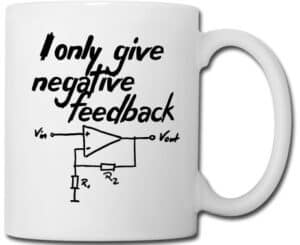… never mind, I already know.
I’m gonna try to keep this upbeat, but the underlying issue is sad… and oh so preventable.

So many of your employees have these 8-track tapes running in their head that say things like “what’s wrong with me?” “I screwed it up, again” and “I’ll never get this right.” That’s because all they ever seem to hear about is what they messed up, what they’re doing wrong, and what they’re not doing fast enough.
You might hear it fairly often, too, but this isn’t about you.
Want proof that’s what they’re used to? Spend the day doing nothing but walking the building, paying your employees genuine, heartfelt appreciation, and watching their faces light up. If you don’t know why you’d do that, you need help.
A recent exercise with a client highlighted a problem in their – and maybe your – company that people aren’t getting the recognition they deserve for the hard work their doing. This isn’t a rah-rah speech; it’s an indictment that management by exception seems to have become leadership by exception.
The goal of the exercise mentioned above was to demonstrate that difficult conversations were, in fact… wait for it… difficult.
We helped them understand that the more often we’re honest in our conversations – without allowing negative emotions to creep into the difficult ones – the more effective we become at genuine communication, especially when our real motivation is to help the other person grow and improve. Practice may not make perfect, but it sure makes us a lot better.

Anyway, the reason I bring the subject up is that during the exercises with groups of leadership teams, the hardest part of the conversations for everyone in the room was receiving POSITIVE feedback. Lots of emotion accompanied knowing that someone else actually noticed what they were doing well, and because they weren’t used to that kind of feedback, they were emotionally unprepared for it.
That’s a shame, because the vast majority of what your co-workers do day after day is good, if not excellent.
NOTE: This is NOT about Millennials needing more positive strokes than previous generations; I don’t buy into that BS.

This is about your culture. It’s about making your employees feel valued for what they do. It’s about people not spending their day looking behind them wondering who’s next in the “you’re doing this wrong” parade. Why would anyone want to spend 8+ hours a day in an environment that makes them feel bad about themselves?
If you don’t believe in your heart that your employees are more productive and more engaged in an environment that makes them feel like a valued contributor, we can facilitate a remedial Leadership 101 session for you.
Since many of you like to pass along easy 3-step guides for improvement, I’ll give you one:
- Stop with the management by exception! No one I know wants to be managed, much less by exception. And there’s no such thing as leading by exception. We’re okay with being led, but only if we trust our leaders to lead us to where we (the organization) needs to be going.
- Get out from behind your desk and spend time with the people who look up to you. Sorry, going to lunch with your suck-ups doesn’t cut it. I’m serious about this, folks… you’re on display from the second they see you in the morning to when they watch you drive out of the parking lot. They KNOW how you spend your time, and your calendar is a direct reflection on what you care about. They’re not going to give you any discretionary effort if they don’t FEEL like you care about them, and regularly checking in on them is one way to show them that you do.

In case you didn’t notice, those three steps are free. That means there’s no risk to trying to improve the environment to one where people feel like valued contributors, except the risk of creating a workplace they actually want to come to in the morning.
I think you’ll be pleasantly surprised that when you get into the habit of freely recognizing good performance, you’ll get more good performance. And as a bonus, you’ll grow to have a better appreciation for the contributions of others. This isn’t just a workplace skill; this is a life skill.
It’s up to you, leaders. Try it! What have you got to lose?

